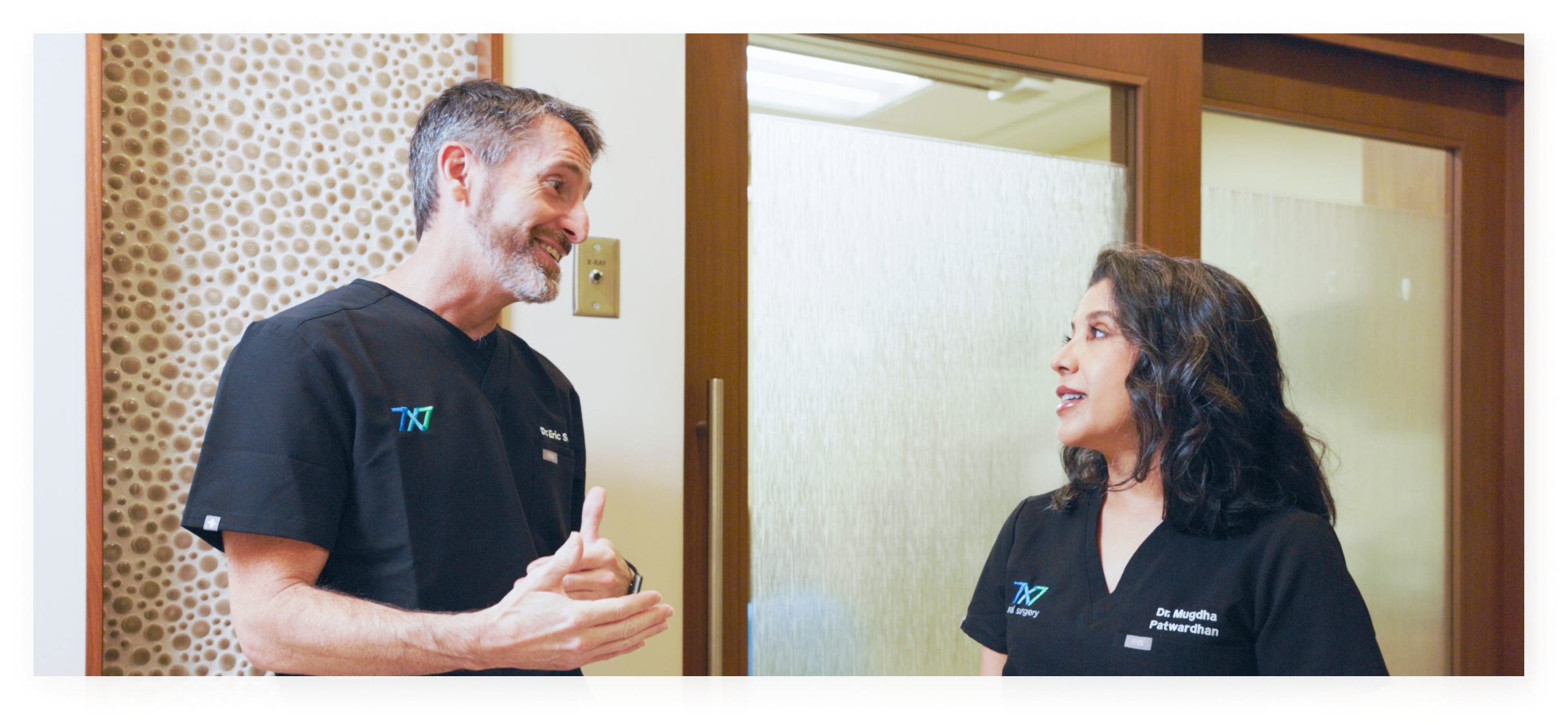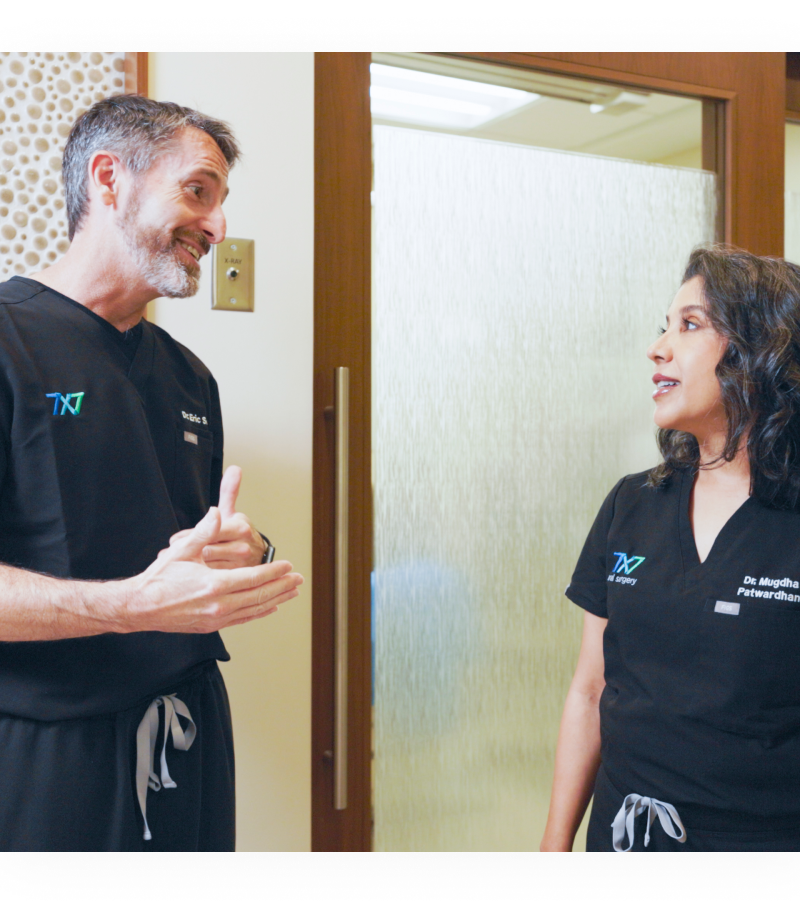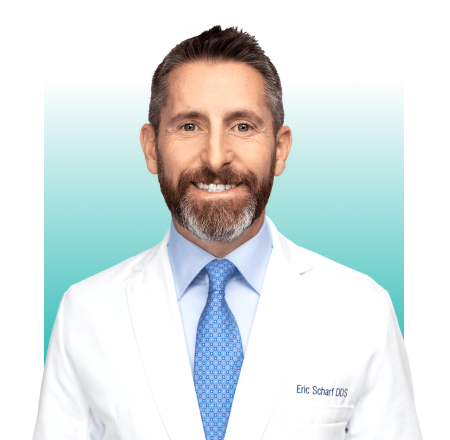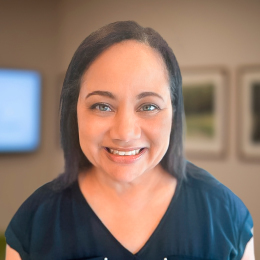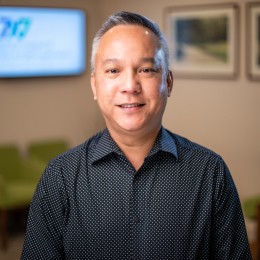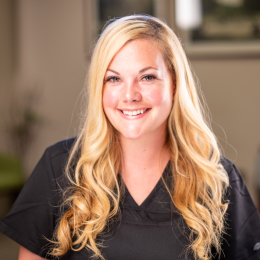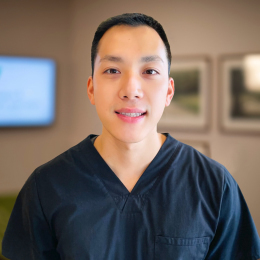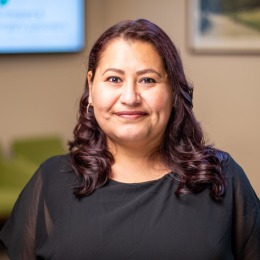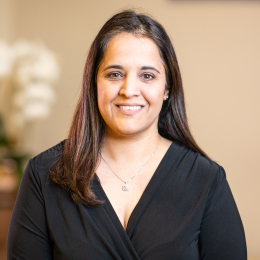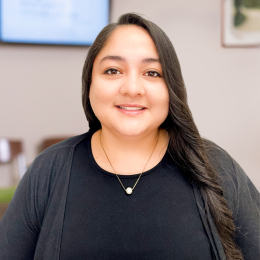About Us
When you visit our oral surgery practice, you can expect to receive attentive care and compassion from experts who strive to provide every patient with a positive and meaningful oral surgery experience. We value our patients’ care and comfort, and when you visit one of our oral surgery offices, we want you to feel like part of the family. Welcome to 7x7 Dental Implant & Oral Surgery Specialists, where we create designer smiles!
Our Mission
We are dedicated to providing exceptional oral surgery care to all our patients in a safe and welcoming environment. Our doctors have excelled as scholars and educators, and continuously strive to exceed the standard of oral and maxillofacial surgery by implementing technological advancements that positively impact the lives of others. Our goal is to create a warm and friendly environment where patients of all ages can expect unparalleled oral surgery treatment, safety, and overall care.
Meet Our Doctors
Dr. Dean Duncan, Dr. Eric Scharf, Dr. Mugdha Patwardhan, Dr. Len Tolstunov, Dr. Andrew Morrow, and Dr. Dominique Chagniot manage and treat a wide variety of problems relating to the mouth, teeth, and face. All of our oral surgeons are board-certified or eligible for board certification, which means that they regularly maintain the highest standards of oral surgery care. Our team at 7x7 Dental Implant & Oral Surgery Specialists looks forward to giving you exceptional treatment and care in a welcoming and friendly environment.
What Makes Us Different?
All our oral surgeons are board-certified or board-eligible, which means they meet the highest oral surgery standards.
Our team members lead seminars, write scholarly articles, and participate in a well-known implant study group.
We use sophisticated equipment, such as 3D scanning and imaging, to provide highly accurate and effective treatment.
Our oral surgeons are highly trained and experienced in safely administering all forms of anesthesia and value your safety and comfort.
Our staff schedules appointments around your busy schedule and performs accurate and effective procedures in a timely manner.
Our clinical and administrative staff comprises warm, friendly professionals who are happy to help and answer any questions you may have.
Meet Our Team
At 7x7 Dental Implant & Oral Surgery Specialists, our staff consists of a team of warm, friendly business professionals who are eager to assist you in all matters related to your care. Our scheduling coordinators can help you with handling your office visits, while our business team has specialized training in insurance reimbursement and financial assistance. Whenever you need help, you can depend on the team at 7x7 Dental Implant & Oral Surgery Specialists!
Samantha
General Manager
Sharon
HR Administrator
Corey
Financial Administrator
Rochelle
Practice Administrator
Rogel
Implant Coordinator
Savanna
PR / Marketing Coordinator
Summer
PR / Marketing Coordinator
Domenick
Director of PR & Marketing
Stephanie
Lead Surgical Assistant
Tiffany
Lead Surgical Assistant
Karmen
Lead Surgical Assistant
Calvin
Lead Surgical Assistant
Aimee
Lead Surgical Assistant
Vilma
Treatment Coordinator
ILeea
Treatment Coordinator/Practice Administrator
Jin
Treatment Coordinator
Betzaira
Treatment Coordinator
Annette
Treatment Coordinator
Learn More
Learn more about our practice and the comprehensive services we provide.
